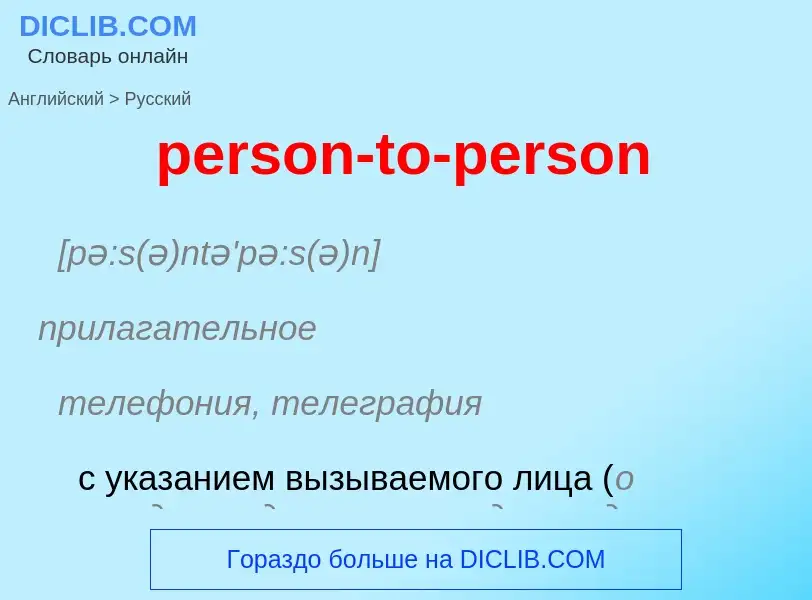Traducción y análisis de palabras por inteligencia artificial ChatGPT
En esta página puede obtener un análisis detallado de una palabra o frase, producido utilizando la mejor tecnología de inteligencia artificial hasta la fecha:
- cómo se usa la palabra
- frecuencia de uso
- se utiliza con más frecuencia en el habla oral o escrita
- opciones de traducción
- ejemplos de uso (varias frases con traducción)
- etimología
each individual person ‹word, tree› - traducción al ruso
[pə:s(ə)ntə'pə:s(ə)n]
прилагательное
телефония, телеграфия
с указанием вызываемого лица (о междугородном или международном вызове)
общая лексика
размер слова
определяется архитектурой процессора. Термин чаще всего ссылается на число разрядов, которое может одновременно передаваться по шине данных или храниться и обрабатываться в регистрах процессора. Обычно это 8, 16, 32 или 64 разряда. В ЭВМ первого и второго поколения, когда не было понятия байта, термин буквально относился к длине машинного слова
Definición
Wikipedia
A person (PL: people) is a being that has certain capacities or attributes such as reason, morality, consciousness or self-consciousness, and being a part of a culturally established form of social relations such as kinship, ownership of property, or legal responsibility. The defining features of personhood and, consequently, what makes a person count as a person, differ widely among cultures and contexts.
In addition to the question of personhood, of what makes a being count as a person to begin with, there are further questions about personal identity and self: both about what makes any particular person that particular person instead of another, and about what makes a person at one time the same person as they were or will be at another time despite any intervening changes.
The plural form "people" is often used to refer to an entire nation or ethnic group (as in "a people"), and this was the original meaning of the word; it subsequently acquired its use as a plural form of person. The plural form "persons" is often used in philosophical and legal writing.

![An abstract painting of a person by [[Paul Klee]]. The concept of a person can be very challenging to define. An abstract painting of a person by [[Paul Klee]]. The concept of a person can be very challenging to define.](https://commons.wikimedia.org/wiki/Special:FilePath/Paul Klee WI (In Memoriam) 1938.jpg?width=200)
